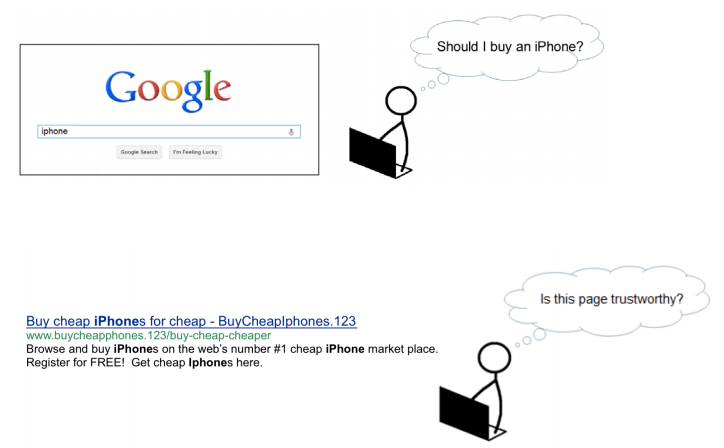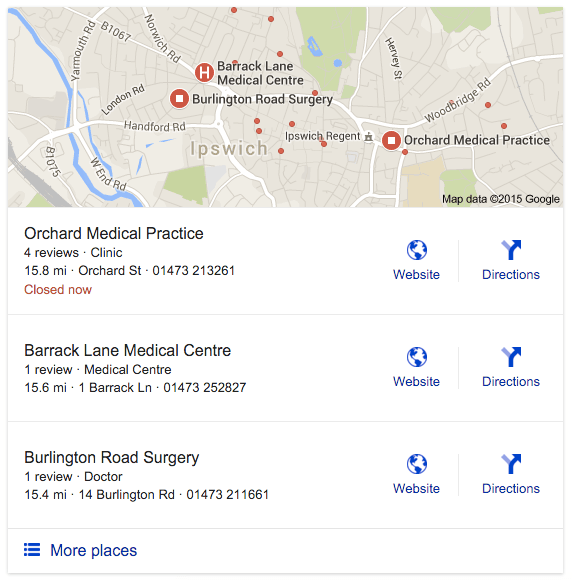The recent publication of Google Search Quality Testing guidelines provided valuable insight into Google’s shifting definition of quality search results. What is unusual about this is how candid Google have been about these factors this time as the previous releases have been leaked rather than published.
Either way, the contents of these guidelines are going to prove increasingly significant over the coming months. For anyone looking for the next “scoop” on what Google will use for future ranking factors, this is as close as you’re going to get.
Google’s Third Party Quality Testing
It’s no secret that Google third party test their search results. In fact you’d have to wonder what they were doing wrong if they didn’t run tests. What is helpful for the search industry is that we get to see these documents every now and then. These provide a key insight for us into the criteria that they judge their search results by.
For those who want to see them first hand, Google has made them available to all here. The 150+ page document is a mammoth read, but can provide some great insights into what Google currently considers a “quality” web page.
Whilst these are only guidelines – not direct ranking factors – we can work backwards from what’s outlined here to influence how we build pages. Whether you agree with them or not, Google are using these tests to confirm how well they’re doing. And if they want a page to show “expertise, authoritativeness and trustworthiness”, for example, you should too.
There have been some crucial additions to these latest guidelines this time, which give a huge indication of what is quality – “Understanding Mobile Needs” and “Needs Met”.
Understanding Mobile Needs
It has been a long-standing joke that each of the last 5 years have been “the year of mobile” if Google is to be believed. The rise of mobile has been quick, just not as quick as Google’s rhetoric suggests. 2015/2016 is a significant time for mobile, there’s no mistaking that.
“Mobilegeddon“, the announcement back in May that mobile overtook desktop searches, the advancements of App indexing, Accelerated Mobile Pages and now Google’s new rigorous mobile testing guides show Google is all about mobile – more so than before!
More people search on mobile, search behaviour is radically different on mobile and ultimately creating a positive user experience on mobile is more difficult (or different?).
Google’s understanding of the user needs on a mobile is pretty extensive, the following quote from their latest guidelines Google spell out their doctrine for mobile search and what websites need to be able to do.
“Important: Mobile smartphones should make tasks easy, even for mobile users with a small screen device (i.e., size of smartphone, not a tablet). Users want results right away, at that moment, and may not be able to spend a lot of time to find what they are looking for.”
Google’s QA testers are now expected to rate websites and results based on the positive mobile experience. This rating is based heavily around the new “needs met” guidelines.
What Are “Needs Met”?
We search because we need something, the key to successfully meeting this need is to delivery it quickly and unthinkingly. Search augments our day-to-day tasks, but the only way this can happen is if it works. “Needs Met” is the method which is now being used by Google to judge the effectiveness of search results for its testers.
“Needs Met rating tasks ask you to focus on mobile user needs and think about how helpful and satisfying the result is for the mobile users.”
When you search for “how do I change the lightbulb on my 2001 Vauxhall Corsa?” it’s quite easy to establish the “need” isn’t it? The best result is the one which shows you the most efficient way to achieve the goal of the searcher. This can be the difference between two guides demonstrating the same thing, just one more effectively than the other.
But determining the success of the above results needs human feedback. With metrics Google can infer a limited amount – and is getting better – but this isn’t to be relied on. Yet.
Within Google’s new guidelines they provide a scale to judge the search results against. At one end “Fully Meets” and the other “Fails to meet” with all those between. Pretty straightforward!
The third party testers rank the search results in line with the search query to grade the relevancy and ultimately, suitability of the result.
But is this a New “thing”?
The notion of “provide the best result” for the customer isn’t new, not at all. Google doesn’t try to hide the importance of this, and why would it?
Introduction of the “Needs Met” criteria, for me, shows that Google is becoming more confident that they can meet the needs of the searcher on mobile, wherever they are. The number of search queries used daily are increasing, becoming more diverse and challenging than ever. Whether Google gets it right all the time now, or not, is less relevant than the fact this is their goal. And it should be yours too.
Answering whether your “website meets the needs of the searcher” isn’t always easy. This will depend on many factors, the keyword, the context, the person searching and the device they’re searching on. Irrespective of this, Google are becoming far better at measuring the indicators of success or failure for this.
Google will want to rank the successful sites better – no question.
Understanding the Needs
Ranking factors aside, we should consider the experience our websites provide and to what extent they meet the need of the user. How do you answer this?
- What is the user looking to do with the page?
- What does the user need from the page for this?
- Does the page provide this for a mobile context?
- How can you be sure?
If you’re confident your page has what it takes to meet the need and that is verifiable within the data – we all win.
Google noted that these guidelines inform experiments, rather individual site rankings. Those who want a more concrete set of ranking factors may have to keep looking. Consider this though, making a website with this approach means that at worst you have an awesome website – that’s worth something, right?
Crucial Differences
What is the difference between a page which has “SEO content” and a page which really adds value? This being a subjective question is going to be hard for us to judge. Google’s MO with questions like this is to let the users decide, and with “needs met” this will unlikely be any different.
Enough content to be “Panda safe”, the right keywords in the page title, URL and H1 doesn’t always provide value to the user – in fact there are numerous occasions where it proves to be the opposite.
It’s Not All About Websites
It is not just websites that can meet needs. Another new factor in these guidelines is the stronger focus on local and apps. Deep links into apps can be “fully meets”. Results found in the “snack pack” (local results) can also be “fully meets”. The featured snippets being pulled into results are also being graded in accordance with this.
The increased support for app indexing and the constant evolution of local are all user driven, so there are more opportunities for you to become the best result. Whilst third party testing guidelines doesn’t mean it’s a ranking factor yet, Google can measure the types of interaction which take place.
If it’s measurable, it could easily become a ranking factor, best prepare!




